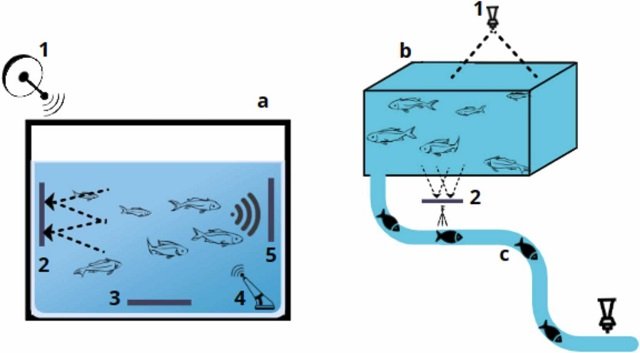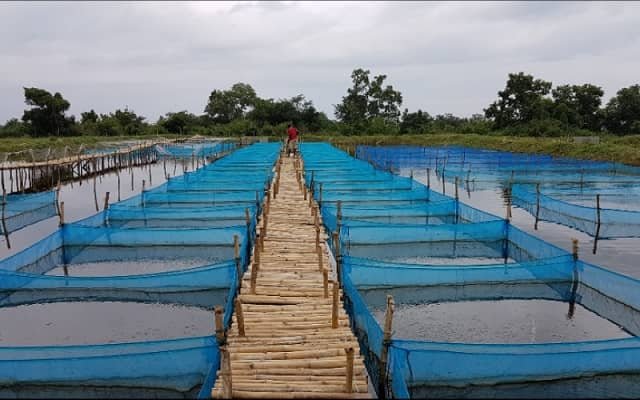
The aquaculture industry, responsible for a substantial portion of our global food production, has long grappled with the challenge of maintaining high-quality food production in an environmentally responsible manner.
Technological limitations in commercial tools, coupled with the absence of integrated systems and sensors to monitor environmental variables and physiological characteristics of animals, have posed significant obstacles. For years, many aquaculture farms have relied on manual data collection at extended intervals, often leading to management decisions based on human experience, with potential subjectivity.
A study published by researchers from the 3N & Physics Department at the University of Aveiro, where they review the application of technologies to enhance the outcomes of the aquaculture industry, suggests that due to its advantages, the widespread use of technology can fill existing gaps in this field of research in the coming years.
By harnessing the power of interconnected sensors and automated equipment to collect and store real-time data, aquaculture is advancing toward greater precision, sustainability, and evidence-based decision-making.
Understanding Industry 4.0
To grasp the impact of Industry 4.0 on aquaculture, it is essential to understand its principles and fundamentals.
Industry 4.0, also known as the Fourth Industrial Revolution, entails the integration of digital technology into industrial processes, ultimately leading to smart factories and data-driven decision-making. Some key technological trends acting as essential tools for sustainable food production include the Internet of Things (IoT), artificial intelligence, machine learning, computer vision, and optimized sensors.
The implementation of Industry 4.0 promises improvements in efficiency, profitability, and sustainability across various industrial sectors.
Industry 4.0 solutions for aquaculture
Camera systems for monitoring
An inherent challenge of using direct observation to assess the conditions of animals in aquaculture systems leads farmers to seek technological solutions for monitoring individual and population health.
State-of-the-art camera systems are currently employed to monitor aquatic organisms and environmental conditions. These cameras can track variables such as fish behavior and food distribution. Computerized image analysis is a useful and promising strategy for extracting information from the fish population due to its non-invasive, automatic, and remote nature.
Stay Always Informed
Join our communities to instantly receive the most important news, reports, and analysis from the aquaculture industry.
Communication networks and IoT
Internet of Things (IoT) devices and communication networks collect, transmit, and store real-time data, enabling aquaculturists to efficiently monitor various parameters. These technologies provide continuous updates on critical factors like temperature, pH levels, and dissolved oxygen.
Despite advances in information transmission technology, there is a significant need for improvement to ensure connectivity, efficiency, accuracy, and secure communication within IoT devices in the aquaculture environment.
Robotic systems and automation applications
In the aquaculture industry, some tasks must be carried out by humans, which comes with limitations related to human behavior.
An example is the feeding of aquaculture species, a labor-intensive activity. Executing this task with automated devices can take advantage of their characteristics to achieve results with high repeatability and precision, thereby reducing food wastage. Automation changes the game in aquaculture, simplifying feeding, water quality control, and monitoring, reducing human error and labor costs. Automated feeders and water quality control systems are among the innovations streamlining aquaculture operations.
Data interpretation and decision-making tools
According to the study’s authors, “the need to interpret a complex set of data, often with no correlation between them, to make the most assertive decisions about managing a production system can lead humans to opt for less favorable options in terms of productivity and sustainability.”
In this scenario, advanced software and artificial intelligence algorithms help interpret the collected data and offer insights for decision-making. These tools allow operators to make informed decisions quickly, optimizing production and sustainability.
Modern detection strategies
Traditional aquaculture methods often struggle to monitor parameters that are difficult to measure. Modern detection strategies, including remote sensing and molecular techniques, are overcoming these gaps.
“UV/Visible spectroscopy is a simple and cost-effective strategy for nitrite detection that works based on the reaction of a diagnostic reagent with nitrite, providing absorption proportional to the nitrite concentration,” report the researchers.
Conclusion
The integration of Industry 4.0 concepts into the aquaculture industry marks a transformative shift in how we produce food sustainably.
With real-time data, interconnected sensors, and automated tools at their disposal, aquaculturists can enhance the quality, productivity, and sustainability of their operations. These technologies address long-standing limitations, and their widespread adoption in the coming years promises to revolutionize aquaculture, ensuring a more sustainable and efficient future for food production.
By embracing Industry 4.0, the aquaculture industry is paving a brighter and more sustainable path for itself and our global food supply.
Contact
Vitorino Biazi
i3N & Physics Department
University of Aveiro
3810-193 Aveiro, Portugal
Email: vitorino_biazi@hotmail.com, vitorino.biazi@ua.pt
Reference (open access)
Vitorino Biazi, Carlos Marques. 2023. Industry 4.0-based smart systems in aquaculture: A comprehensive review, Aquacultural Engineering, Volume 103, 2023, 102360, ISSN 0144-8609, https://doi.org/10.1016/j.aquaeng.2023.102360.
Editor at the digital magazine AquaHoy. He holds a degree in Aquaculture Biology from the National University of Santa (UNS) and a Master’s degree in Science and Innovation Management from the Polytechnic University of Valencia, with postgraduate diplomas in Business Innovation and Innovation Management. He possesses extensive experience in the aquaculture and fisheries sector, having led the Fisheries Innovation Unit of the National Program for Innovation in Fisheries and Aquaculture (PNIPA). He has served as a senior consultant in technology watch, an innovation project formulator and advisor, and a lecturer at UNS. He is a member of the Peruvian College of Biologists and was recognized by the World Aquaculture Society (WAS) in 2016 for his contribution to aquaculture.







